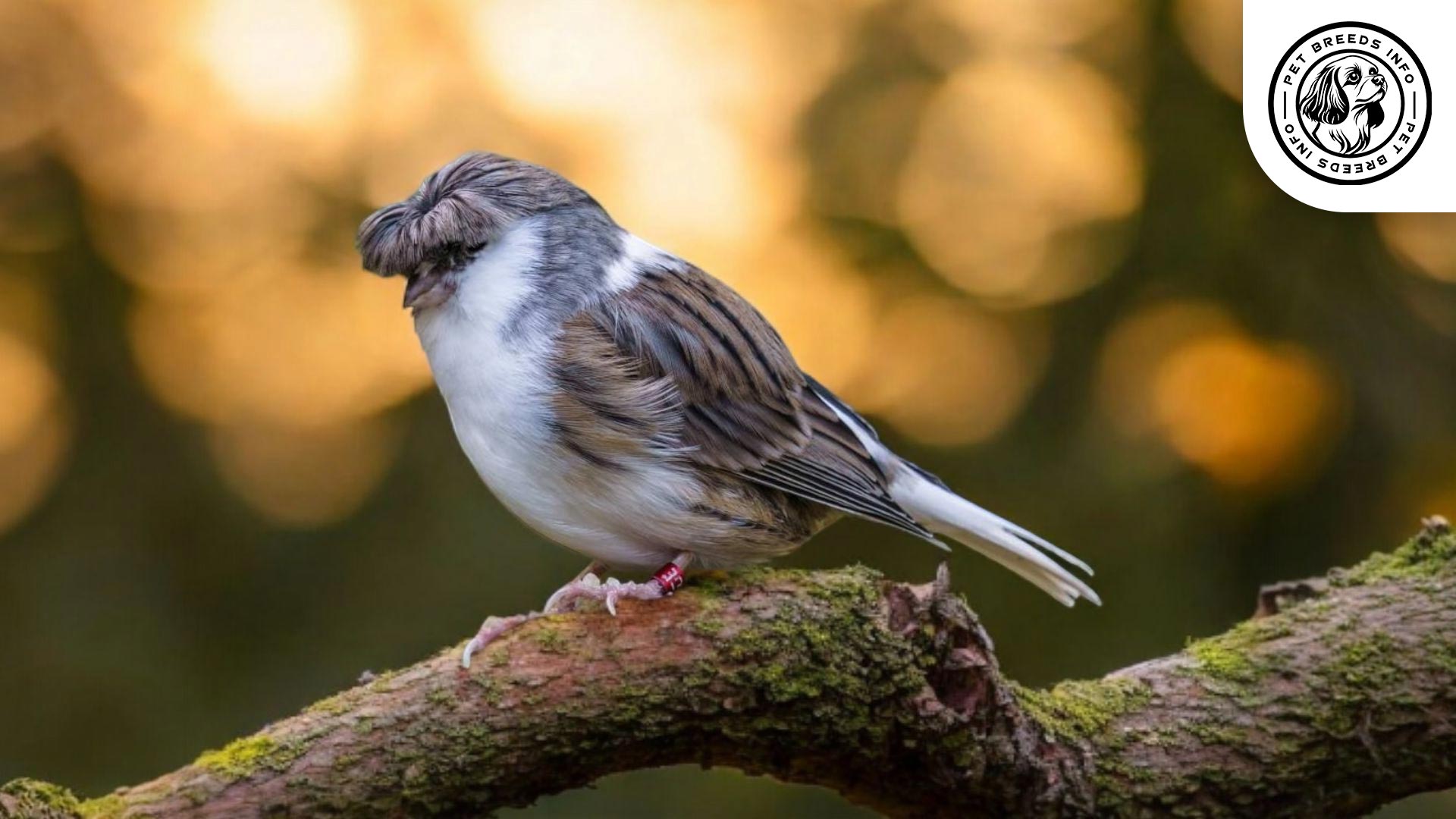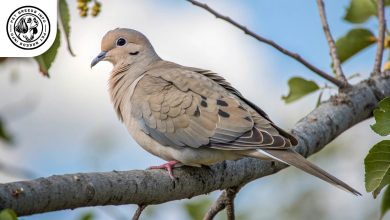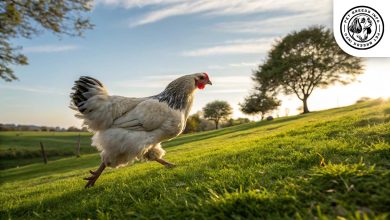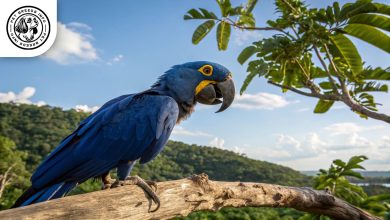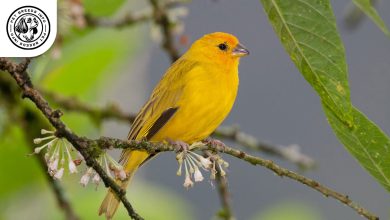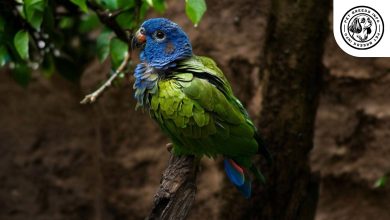Gloster Canary Breed: Personality, Lifespan, Food & Care
General Introduction of the Breed
The Gloster Canary is a popular breed of canary known for its unique appearance and charming personality. It is also referred to as the “Gloster Fancy Canary.” This bird originates from England and was developed in the early 20th century through selective breeding.
Gloster Canaries were created by crossing various canary breeds, including the Crested Canary and the Border Canary, to achieve their distinctive look. Today, they are highly valued by bird enthusiasts for their captivating appearance and pleasant singing abilities.
Table of Contents
| Common Name | Gloster Canary |
| Scientific Name | Serinus canaria domestica |
| Origin | England |
| Size | Small – around 4.5 inches (11–12 cm) |
| Lifespan | 7–12 years |
| Colors | Yellow, green, cinnamon, white |
| Talking Ability | Limited – primarily known for melodious singing rather than mimicry |
| Noise Level | Moderate – pleasant, musical singing |
| Social Behavior | Gentle, social with other canaries and finches; prefers peaceful company |
Physical Characteristics
Gloster Canaries are small birds, typically measuring around 4.5 inches (11-12 cm) in length. They have a compact body with a short, stout beak.
One of the most notable features is their crested or non-crested head. Crested Gloster Canaries, known as “Corona,” have a rounded feathered crest, while non-crested ones, called “Consort,” have a smooth head.
They come in various color variations, including yellow, green, cinnamon, and white. Their eyes are small, round, and dark in color, adding to their expressive look.
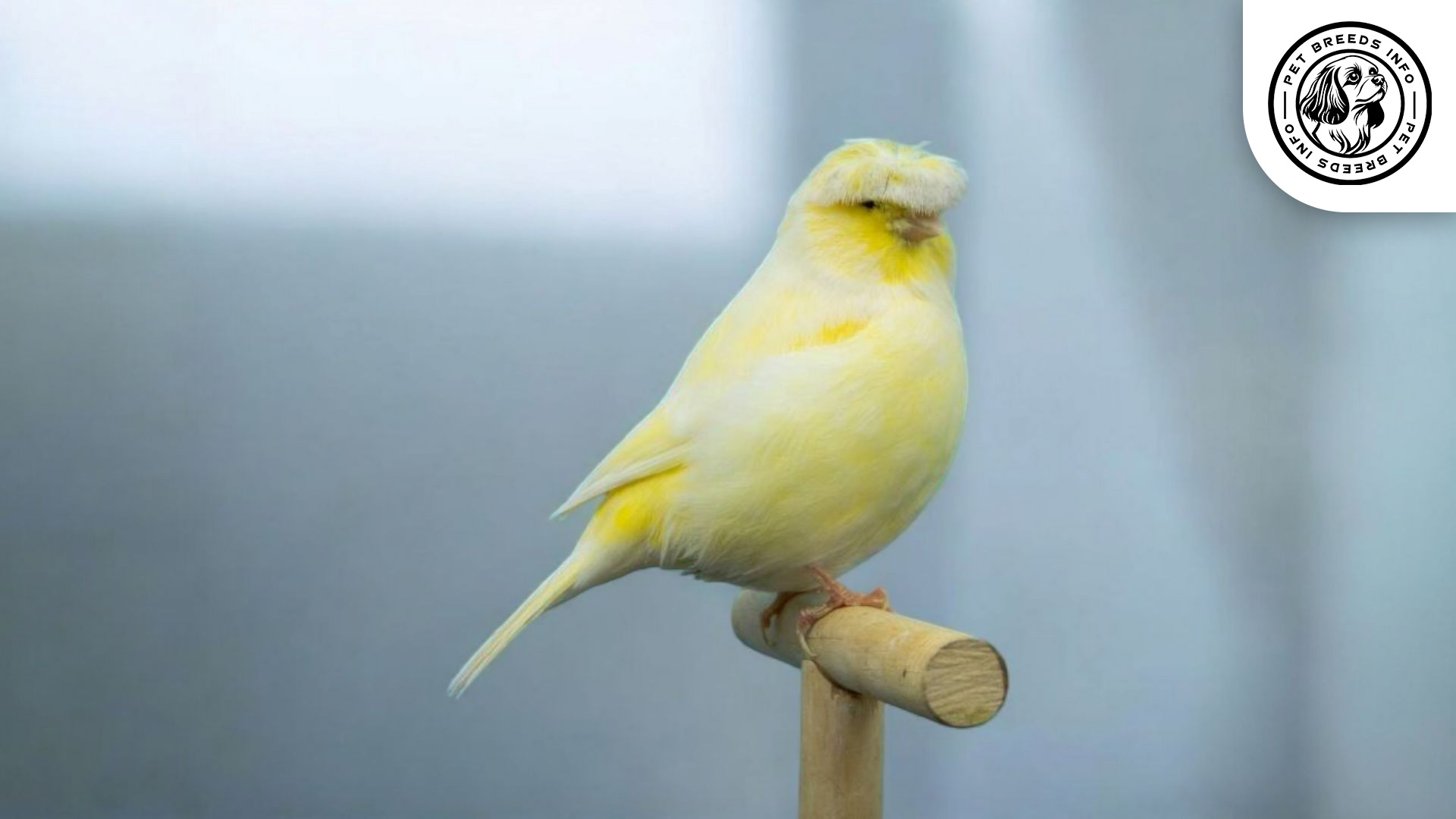
Personality and Temperament
Gloster Canaries are known for their friendly and gentle nature. They are intelligent and relatively easy to train, especially when it comes to recognizing routines and interacting with their owners.
They are energetic birds that enjoy flying around and exploring their environment. However, they are not overly demanding in terms of attention and can entertain themselves with toys and perches.
While they can become attached to their owners, they generally remain independent and do not require constant human interaction. Their social behavior is good, making them suitable for families, provided they are handled gently.
Care and Maintenance Requirements
Gloster Canaries need adequate space in their cage to move around and exercise. A large birdcage with horizontal bars for climbing and perches at various levels is ideal.
They thrive in indoor environments but should be kept away from direct sunlight, drafts, and extreme temperature fluctuations. Providing a balanced diet, fresh water, and clean cage conditions is essential for their well-being.
Read More: St. Vincent Amazon Bird
Grooming involves occasional nail trimming and ensuring their beak does not overgrow. Bathing trays or misting should be provided regularly to help keep their feathers clean and healthy.
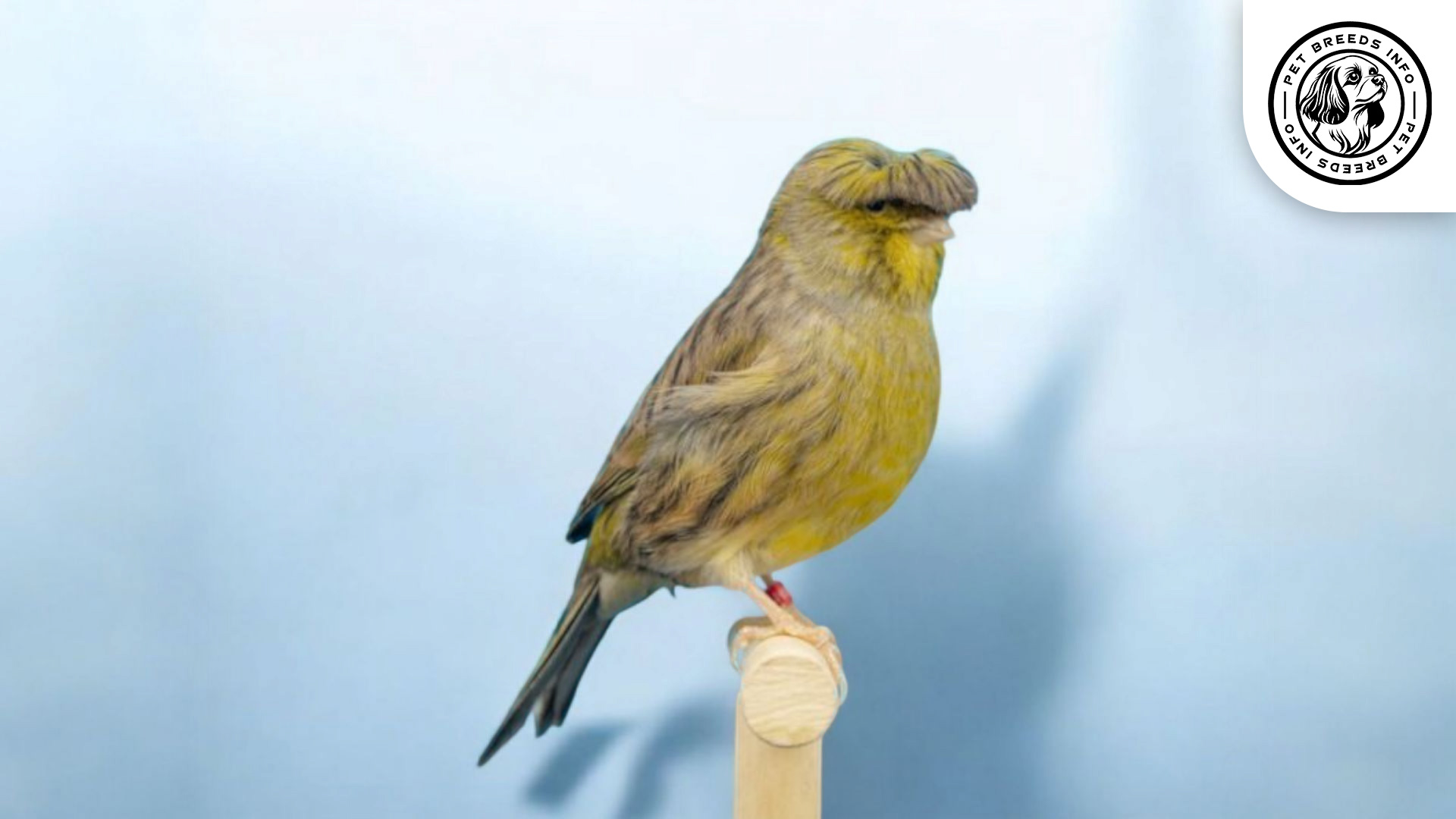
Diet and Nutrition
A well-balanced diet for Gloster Canaries consists of high-quality canary seed mixes, fresh fruits, and vegetables. Leafy greens, apples, carrots, and cucumbers can be offered in moderation.
Avoid feeding avocado, chocolate, caffeine, and salty or sugary foods, as these can be toxic to birds.
Ensure food portions are appropriate and provide fresh food and water daily. Supplementing their diet with bird-safe vitamins and minerals can help maintain their health.
Health and Common Medical Issues
Gloster Canaries are generally hardy birds, but they can be prone to respiratory infections, mites, and vitamin deficiencies if their living conditions are inadequate.
Signs of illness include lethargy, fluffed-up feathers, difficulty breathing, and loss of appetite. Regular veterinarian check-ups and maintaining a clean environment can help prevent health issues.
The average lifespan of a Gloster Canary ranges from 7 to 12 years with proper care.
Read More: Pied Cockatiel Bird
Training and Behavior Management
While Gloster Canaries are not typically trained like parrots, they can learn to recognize their owner’s voice and follow simple patterns of behavior.
Encouraging interaction through soft talking and whistle responses can help build trust. Avoid forceful handling, as they prefer gentle, patient interactions.
Socialization from an early age ensures they remain comfortable in a home environment.
Interaction with Other Animals and Humans
Gloster Canaries are friendly but not highly interactive birds. They do well with other canaries and small finches but should be kept apart from aggressive or larger bird species.
They are suitable for individuals, families, and seniors who enjoy watching and listening to birds rather than seeking a highly interactive pet. Proper supervision around small children is advised.
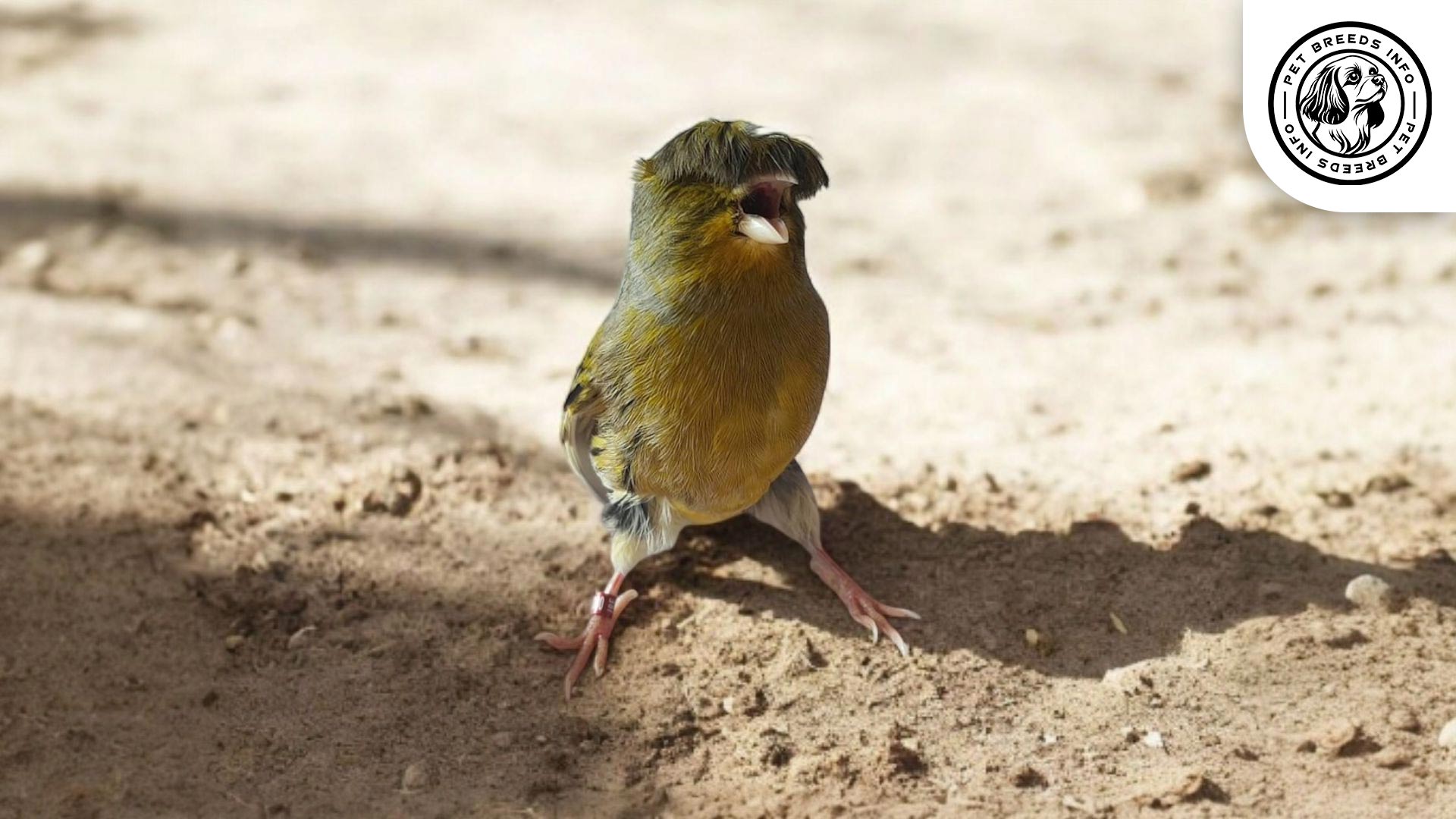
Price and Availability
The price of a Gloster Canary varies depending on factors such as age, coloration, and breeder reputation. Generally, they cost between $50 and $150.
It is recommended to purchase them from reputable breeders or adopt from bird rescues. When selecting a Gloster Canary, look for active, alert birds with bright eyes and smooth feathers.
Conclusion and Final Thoughts
Gloster Canaries make wonderful pets for those seeking a low-maintenance, visually appealing, and melodious companion. They are well-suited for individuals, families, and seniors who appreciate bird-keeping as a hobby.
Read More: Chantecler Chicken
Before getting a Gloster Canary, potential owners should consider their space requirements, dietary needs, and general care responsibilities. With proper attention and care, these birds can bring joy and beauty to any home.
FAQ
What makes the Gloster Canary unique?
Its distinctive crest (in “Corona” variety) and sweet singing ability make it a standout among canary breeds.
What are the two types of Gloster Canaries?
The Corona (with a crest) and the Consort (without a crest).
Are Gloster Canaries good for beginners?
Yes, they are low-maintenance, hardy, and suitable for bird lovers of all experience levels.
Do Gloster Canaries talk?
No, they don’t talk, but they produce lovely melodic songs that are soothing to listen to.
Can they live with other birds?
Yes, they get along with other canaries and finches, but not with aggressive or larger bird species.
